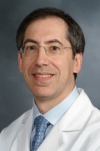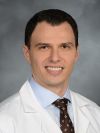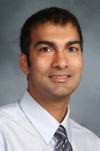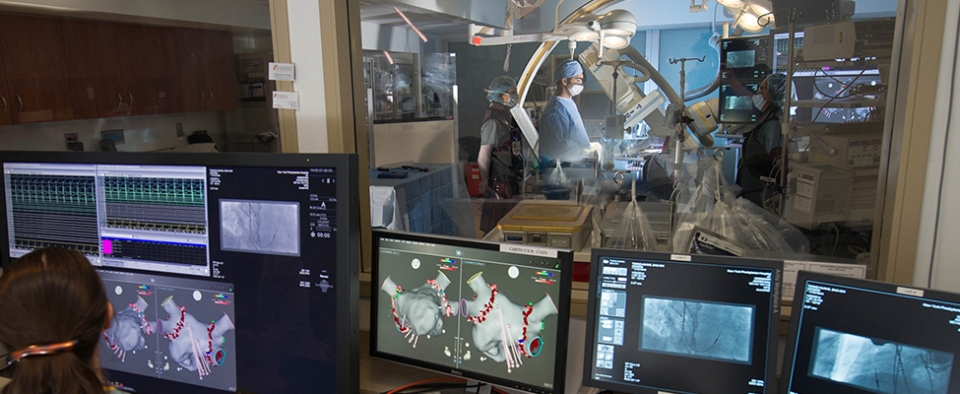Arrhythmia and Electrophysiology
Since the Cardiac Electrophysiology Laboratory at Weill Cornell Medical Center first opened its doors in 1987, it has grown into one of the busiest and most experienced laboratories in the country. Our electrophysiologists have been recognized nationally as leaders in the field through engagement in important research. Our physicians provide cutting-edge therapies, compassionate care, and personalized treatment plans tailored to each patient's unique needs.
What is Arrhythmia?
Arrhythmia is an abnormal or improper heartbeat, which could be rapid, slow, or irregular. Our team specializes in diagnosing and treating this condition using the most advanced equipment and techniques. With early detection and diagnosis, arrhythmias can be successfully treated. The goal of treatment is to relieve uncomfortable symptoms and prevent severe complications.
What is Cardiac Electrophysiology?
Cardiac Electrophysiology is a specialty of Cardiology concerned with the diagnosis and treatment of arrhythmias.
During your appointment your cardiologist will discuss the diagnostic testing or procedures and treatments available to determine the best option for you.
If you are at risk for arrhythmias (for example, if you have certain forms of heart disease), you may benefit from implantation of electronic devices (pacemakers, implantable cardioverter-defibrillators, or cardiac resynchronization devices) into the body to improve the function of the heart and protect against sudden cardiac problems. Other arrhythmias, like atrial fibrillation and flutter, supraventricular tachycardia, and ventricular tachycardia, can be treated with a procedure known as catheter ablation.
Arrhythmia Services We Offer
At Weill Cornell Medicine, we offer a variety of treatments and services, including:
- Diagnostic cardiac electrophysiology studies
- Catheter ablation of arrhythmias (including atrial fibrillation, atrial flutter, supraventricular tachycardia, ventricular tachycardia, and premature ventricular contractions)
- Pacemaker implantation (transvenous and leadless devices)
- Implantable cardioverter-defibrillator implantation (ICD)
- Cardiac resynchronization therapy (bi-ventricular pacing)
- Cardiac contractility modulation
- Pacemaker and ICD lead removal
- Insertable loop recorder (ILR) implantation
- Electrical cardioversion
- Left atrial appendage closure (for stroke prevention in atrial fibrillation patients)
- Pacemaker and ICD follow-up clinic
- Office consultation for evaluation and management of arrhythmias
- Access to research protocols for innovative treatment of heart rhythm disorders
Schedule an Appointment
To schedule an appointment to see one of our electrophysiologists, please call (646) 962-3421.
If you are already an established patient, you may also request an appointment online using Weill Cornell CONNECT. We will make every effort to contact you within 24 hours.
Our staff is here to help coordinate your care. They will provide you with information on our physicians, their areas of expertise and help arrange for your visit and other testing when appropriate.
New Patients and Initial Consultations
To help you and the physician prepare for your visit, below is a list of items that our office requires prior to scheduling your appointment:
- Copies of cardiac related medical records such as EKGs, Holter and/or event monitor reports, echocardiograms, stress test, catheterization reports, any MRI or CT scan reports and imaging discs and any previously performed electrophysiologic procedures. You may also sign a Medical Records Release Form and our office will request the records directly.
- A completed New Patient Questionnaire
Our Physicians
| Faculty | Title | Phone | ||
|---|---|---|---|---|
 |
Steven M. Markowitz, M.D. |
Professor of Medicine, Director Cardiac Electrophysiology Laboratories | 646-962-3421 | Full Profile |
 |
Jim Cheung, M.D. |
Professor of Medicine, Director Cardiac Electrophysiology Fellowship Program, Director Clinical Electrophysiology Research | 646-962-3421 | Full Profile |
 |
Erden Goljo, M.D. |
Assistant Professor of Medicine | 646-962-3421 | Full Profile |
 |
James Ip, M.D. |
Professor of Medicine | 646-962-3421 | Full Profile |
 |
Bruce B. Lerman, M.D. |
Professor of Medicine | 212-746-2169 | Full Profile |
 |
Christopher F. Liu, M.D. |
Associate Professor of Medicine, Medical Director Electrophysiology Services NYP Weill Cornell Sphere | 646-962-3421 | Full Profile |
 |
George Thomas, M.D. |
Assistant Professor of Medicine, Director of Weill Cornell-NYP Cardiac Device Clinic | 646-962-3421 | Full Profile |


